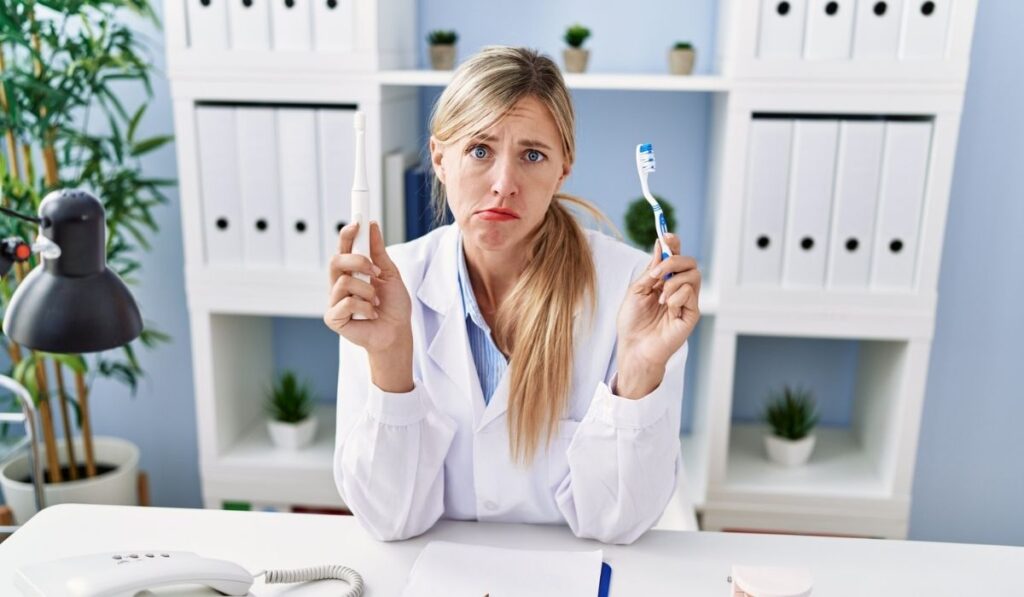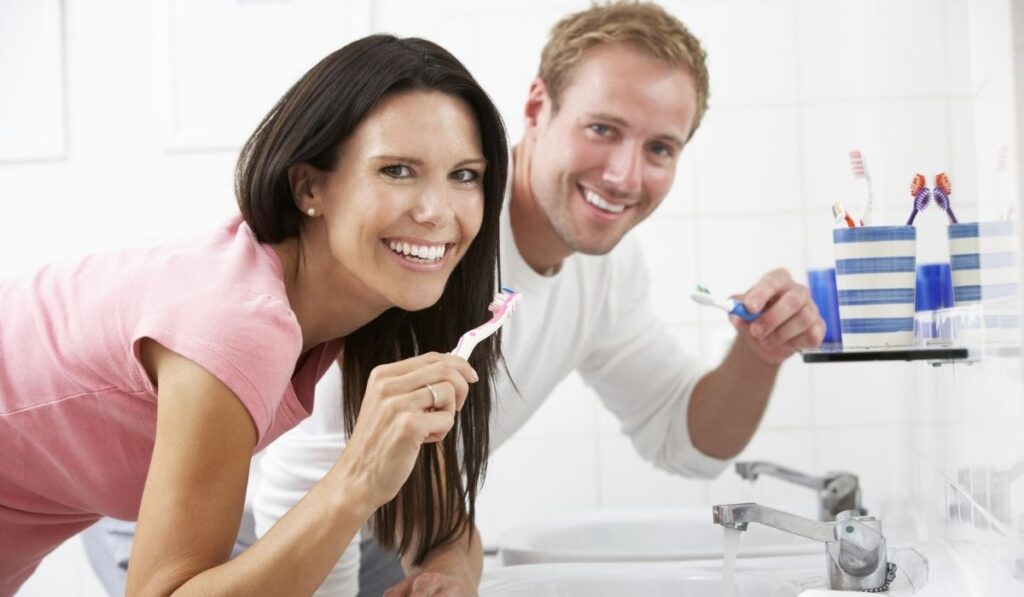Brushing your teeth twice a day is widely accepted as an essential part of oral care, and a great way to get rid of stuck food particles, wash off debris, fight off bad breath, and prevent the growth of any harmful bacteria. But if brushing is meant to get rid of all this debris, what’s the purpose of brushing before you eat breakfast? Is it useful?
Brushing your teeth before you eat breakfast kills plaque-causing bacteria that accumulate overnight and adds a protective layer over your enamel that protects it from acidic foods and drinks. If you brush after breakfast, you should wait about 30 minutes after eating.
Now that you know brushing before breakfast is a good idea, let’s look at whether you should brush again afterward and how long to wait before you brush after eating a meal. And remember, if morning breath is one of your specific concerns, you’ll want to brush your tongue thoroughly as well!
Should I Brush My Teeth Before and After Eating Breakfast?

Brushing your teeth before eating breakfast may be helpful, but is it also helpful to brush after eating? Not quite. While brushing after meals does not necessarily put you in direct danger, it can weaken your teeth in the long run — instead of strengthening them as you might expect.
Brushing your teeth excessively after breakfast can accelerate damage to enamel, a protective layer over our teeth.
When you eat, bits and pieces of acidic food get stuck between your teeth, weakening the enamel. Brushing your teeth in this weakened state can cause enamel to erode faster than usual. Therefore, it is generally not recommended that you brush right after eating breakfast.
Instead of worrying about brushing, it’s better if you worry about what you eat for breakfast. Acidic food and beverages such as pastries, fruits, and coffee are harmful to the teeth, whereas less acidic alternatives like whole grain cereals, omelets, and yogurt are better to prevent erosion of enamel.
Brushing after consuming acidic food is much worse than after non-acidic food so you should choose your breakfast options wisely.
Regardless, brushing is always better than not brushing your teeth. If you want to protect your enamel in the long run, brush once before having breakfast. Otherwise, steer clear of acidic breakfast.
On the flip side, you should brush your teeth after having dinner to rid them of any and all existing bacteria before you go to bed. Brushing your teeth before having dinner is counter-effective because it would lead you to spend the entire night with food stuck between your teeth — a nasty invitation for bacteria to flourish.
And remember, we’re discussing brushing a lot here, but you need to be flossing with something like Glide Crest Dental Floss (on Amazon) at the end of the day as well, in order to really get rid of food particles caught between teeth.
How Long Should I Wait to Brush My Teeth After Breakfast?

Many foods and drinks contain excessive amounts of sugar that encourage the growth of bacteria and erode enamel. This might lead you to think brushing regularly is the way to go.
But that’s not quite the case. In some situations, brushing after a meal or a drink can have adverse effects, such as after consuming acidic food.
Therefore, it’s best to practice moderation and wait a bit after eating to brush your teeth. Generally, it’s recommended that you wait at least 30 minutes and ideally an hour before you start brushing.
Your teeth need at least 30 minutes to recover from the acidity. Otherwise, you run the risk of scratching and eroding the enamel away.
As a rule of thumb, you should brush your teeth after eating or drinking something that contains a lot of sugar to prevent the growth of bacteria. But if you have something acidic such as orange juice, it’s better to wait at least 30 minutes and clean your mouth by rinsing with water or chewing gum prior to brushing.
How Long Should You Wait to Eat After Brushing Your Teeth?
Now that we’ve covered how long to wait before brushing after eating, what about the reverse? Can you eat right after brushing?
If you want, you can wait long enough for the taste of the toothpaste to dissipate before you eat a meal or having a drink. Otherwise, if you maintain good oral hygiene and are careful with your food consumption, eating after brushing your teeth shouldn’t be a problem.
If you’re not consistent with your oral hygiene, have cavities, or experience any other tooth ailments, you should wait a while after brushing before you start eating. Some foods are easier on the teeth than others, but a good practice is to wait 30 minutes after brushing to let your teeth recover.


